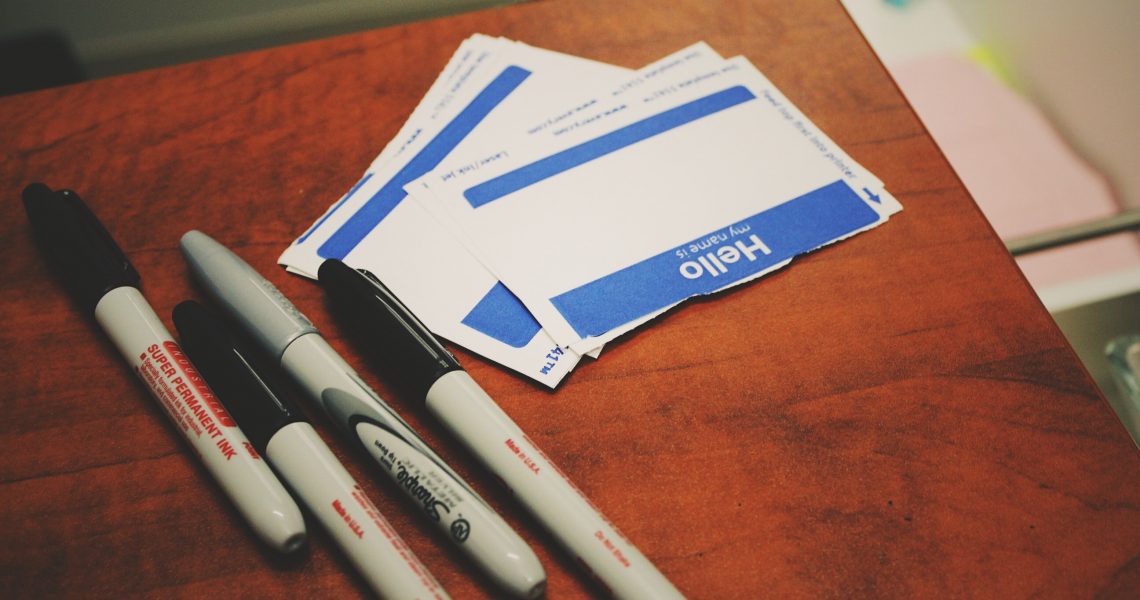“Emrys?” asks the girl behind the counter at Starbucks. “Yep” I answer after a brief moment of hesitation. “What a great name!” she exclaims as she hands me my drinks. “Thank you” I reply as I take my coffees and head outside to the car.
And she’s right; it is a great name. It’s just not mine; it’s my husband’s name. But I can see how she might assume it was my name. It doesn’t sound wrong for a woman. And I DID take my husband’s last name when I got married after all. Why not borrow his first name as well?
What is it about Emrys’ name that makes it work for a woman? Probably the vowels and soft sounds? For instance, have you ever noticed how many women’s names start with an “e” and/or end in an “a”? Names like: Emma, Elena, Emily, Eve, Estella, Erika, Alicia, Melissa, Sophia etc. And men’s names on the other hand tend to have these harder sounds, with k’s and g’s and l’s? Such as: Alexander, Brennan, Frank, Jack, Mason, Michael, Maxwell, Greg etc.
A Google search suggests that the reason for this tendency might be the way Indo-European languages create gender in nouns. Studies have analyzed the grammatical gender of the nouns and names ending in “a” and found a clear correlation: the gender of the common nouns reflects on the gender of names. For example, Spanish has approximately 93% feminine nouns with an “a” ending and 98% female given names with the same “a” ending. You can dive much deeper here.
I couldn’t help but wonder if there was a special sort of etymologist (that is a person who studies the history of words) who studies naming people in particular and I found the answer is yes. Anthroponymy is the study of personal names. I wonder how these naming tendencies differ by culture? What a fascinating topic.
And can I masculinize names by replacing their final vowel with a sharp consonant sound? Let’s try with my own name: Melissa. I would be: Melissk or Melissl. Sounds a bit weird.
Can I masculinize my husband’s name further with a sharp consonant sound? Let’s see: Emryk or Emryl? That works well enough; although he definitely sounds Hungarian.

Perhaps it works better the other way around? Can I can I feminize with a final “a”? Let’s use my father’s name: Mark. He would be Mara, Mari or Maro. That works well. Although, he sounds like a Japanese woman now.
What is your name feminized or masculinized by my rules? (Simply replace the last letter with “k” or “l” to masculinize or replace the last letter with “a” or “i” to feminize).
So we know gendered nouns created gendered naming tendencies but is it a dynamic relationship? Can careful naming affect how others see your child and how they perceive themselves and their gender role? I’m sure somebody has studied that.
Speaking of gender roles and pronouns, my pronouns are she/her but I’ve always seen gender as a bit of a spectrum. I’m pretty far over to the feminine side of things, although I have masculine traits and the men that I like most are in touch with their feminine side.
Interestingly however, when I refer to my body parts, they are masculine. For example, my stomach has always been “he” (as in “He’s a bit excited”) as well as my brain (as in “He’s a bit tired”). My feet on the other hand (or foot) are “they”; although I’m not sure if that’s plural or gender neutral. I’ve never asked.
You might think that’s a silly question to entertain but I’ve found you can learn quite a lot by asking the right questions. Are the right questions about the preferred pronouns of your feet? Hard to say.
But I suppose this all correlates to my need to personify the objects around me. Personification is of course giving an object or animal human qualities, characteristics or behaviours. When we assign human characteristics to non human entities we are deciding what is worthy of our time and care. So, personification is a very empathetic tendency. However, if I didn’t personify my body parts, arguably I wouldn’t gender them.
But I deeply enjoy personifying things. For example, the bridge my husband and I drive across on our way home from work likes to loudly eat us as we drive in one end (Nom, nom, nom) and excrete us (plop? Is pooping an onomatopoeia?) as we exit. Bridge likes the taste of cars, especially in winter when they’re salty from the roads but also when they’re full of groceries from a shopping trip.
There is also a large tree on our drive into Vancouver, who looks just like a sitting person or giant (I’ll have to show you a picture sometime) and likes to be greeted with a sing song “Giant” and/or “Gigante” (apparently he’s Spanish?). In the summer, when he’s very green and leafy, it’s nice to say: “Looking lush buddy!” It’s been determined that Gigante only roams the world at night and is decidedly more introverted in the winter when his leaves have fallen; so one must greet him gently at that time of year, much like one does when arriving at work and saying “Good morning” to a co-worker who is not a morning person.
You may well wonder where this is going? Oh, but that’s the exciting part. Nobody knows.
Is your name typically feminine or masculine? Can you easily switch it? What gender is your stomach? And what, if anything, do you personify? I believe these are the important questions.


